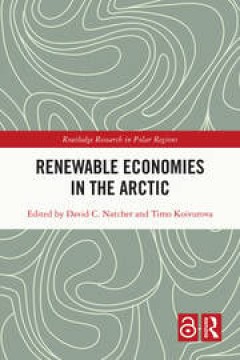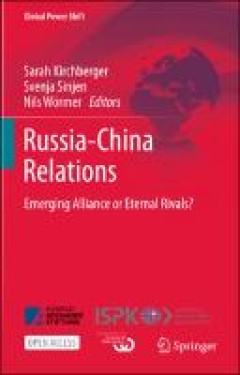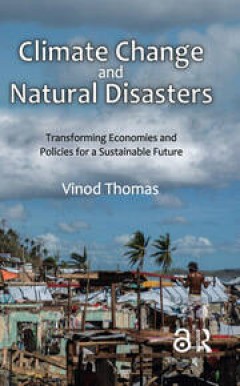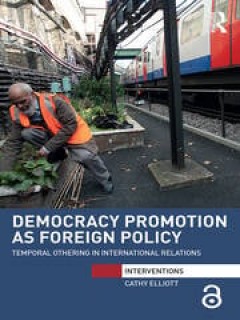Filter by

Globalization, Environmental Law, and Sustainable Development in the Global S…
This volume examines the impact of globalization on international environmental law and the implementation of sustainable development in the Global South. Comprising contributions from lawyers from the Global South or who have experience in the Global South, this volume is organized into three parts, with a thematic inquiry woven through every chapter to ask how law can enable economies that…
- Edition
- -
- ISBN/ISSN
- -
- Collation
- -
- Series Title
- -
- Call Number
- -

Renewable Economies in the Arctic
This book offers multidisciplinary perspectives on renewable economies in the Arctic and how these are being supported scientifically, economically, socially, and politically by Arctic states. The economic development of the Arctic region is witnessing new, innovative trends which hold promise for the sustainable development of the region. This book discusses the emerging forms of renewable …
- Edition
- -
- ISBN/ISSN
- -
- Collation
- -
- Series Title
- -
- Call Number
- -

Routledge Handbook of Global Land and Resource Grabbing
This handbook provides a cutting-edge, comprehensive overview of global land and resource grabbing. Global land and resource grabbing has become an increasingly prominent topic in academic circles, among development practitioners, human rights advocates, and in policy arenas. The Routledge Handbook of Global Land and Resource Grabbing sustains this intellectual momentum by advancing methodol…
- Edition
- -
- ISBN/ISSN
- -
- Collation
- -
- Series Title
- -
- Call Number
- -

Human and Minority Rights Protection by Multiple Diversity Governance
Human and Minority Rights Protection by Multiple Diversity Governance provides a comprehensive overview and critical analysis of minority protection through national constitutional law and international law in Europe. Using a critical theoretical and methodological approach, this textbook: provides a historical analysis of state formation and nation building in Europe with context of religio…
- Edition
- -
- ISBN/ISSN
- -
- Collation
- -
- Series Title
- -
- Call Number
- -

The Politics of Climate Change and Uncertainty in India
This book brings together diverse perspectives concerning uncertainty and climate change in India. Uncertainty is a key factor shaping climate and environmental policy at international, national and local levels. Climate change and events such as cyclones, floods, droughts and changing rainfall patterns create uncertainties that planners, resource managers and local populations are regularly co…
- Edition
- -
- ISBN/ISSN
- -
- Collation
- -
- Series Title
- -
- Call Number
- -

Russia-China Relations: Emerging Alliance or Eternal Rivals?
This open access book examines Russia-China relations across a variety of civilian and military areas of cooperation. Leading experts in the field present empirical case studies covering a wide range of strategic cooperation areas between Russia and China, such as technological, military, economic and political cooperation. The contributing authors shed new light on Chinese and Russian strategi…
- Edition
- Ed. 1
- ISBN/ISSN
- 9783030970123, 9783030970123
- Collation
- 315
- Series Title
- Global Power Shift
- Call Number
- 327 RUS r

The Political Attitudes of Divided European Citizens : Public Opinion and Soc…
ABSTRACT The Open Access version of this book, available at https://www.taylorfrancis.com/books/e/9781003046653, has been made available under a Creative Commons Attribution-Non Commercial-No Derivatives 4.0 license. This book unveils the significant impact of the European integration process on the political thinking of European citizens. With close attention to the interrelation between s…
- Edition
- -
- ISBN/ISSN
- 9781003046653
- Collation
- -
- Series Title
- -
- Call Number
- 320

Climate Change and Natural Disasters
ABSTRACT The Open Access version of this book, available at https://www.taylorfrancis.com/books/9781351527927, has been made available under a Creative Commons Attribution-Non Commercial-No Derivatives 4.0 license The start of the new millennium will be remembered for deadly climate-related disasters - the great floods in Thailand in 2011, Super Storm Sandy in the United States in 2012, and…
- Edition
- -
- ISBN/ISSN
- 9781315081045
- Collation
- -
- Series Title
- -
- Call Number
- -

Democracy Promotion as Foreign Policy
ABSTRACT This book looks at democracy promotion as a form of foreign policy. Elliott asks why democracy was seen to be the answer to the 7/7 bombings in London, and why it should be promoted not in Britain, but in Pakistan. The book provides a detailed answer to these questions, examining the logic and the modes of thinking that made such a response possible through analysis of the stories we …
- Edition
- -
- ISBN/ISSN
- 9781315618050
- Collation
- -
- Series Title
- -
- Call Number
- -

Researching Non-state Actors in International Security: Theory and Practice
This volume provides researchers and students with a discussion of a broad range of methods and their practical application to the study of non-state actors in international security. All researchers face the same challenge, not only must they identify a suitable method for analysing their research question, they must also apply it. This volume prepares students and scholars for the key challen…
- Edition
- Ed. 1
- ISBN/ISSN
- 9781317365303, 9780367141561
- Collation
- 270
- Series Title
- Routledge Critical Security Studies
- Call Number
- 337 RES r
 Computer Science, Information & General Works
Computer Science, Information & General Works  Philosophy & Psychology
Philosophy & Psychology  Religion
Religion  Social Sciences
Social Sciences  Language
Language  Pure Science
Pure Science  Applied Sciences
Applied Sciences  Art & Recreation
Art & Recreation  Literature
Literature  History & Geography
History & Geography